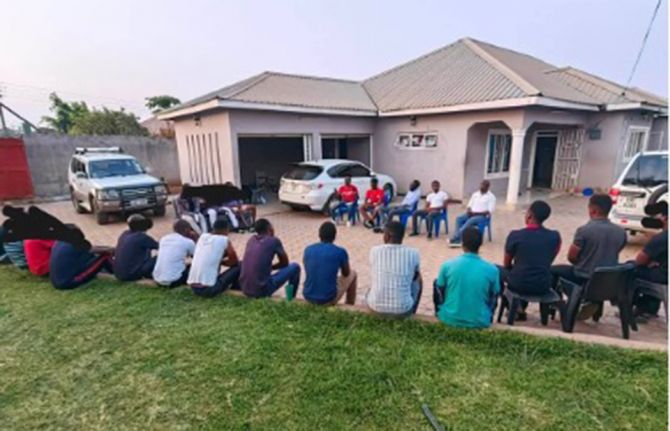

Feature Story
Zambia - an HIV response at a crossroads
24 February 2025
24 February 2025 24 February 2025The United States Government (USG) support to Zambia is estimated at $600 million annually, of which $367 million was committed for the national HIV response for 2025 under the Presidential Emergency Plan For AIDS Relief (PEPFAR).
The USG pause in foreign assistance has caused significant disruption to HIV services in Zambia, with HIV prevention services being hardest hit. HIV Combination prevention for adolescent girls and young women as well as for other marginalized and vulnerable communities are most impacted.
A total of 32 drop-in centers that provide HIV services to over 20,000 key populations living with HIV on ART in 7 out of 10 provinces have been shut down. Additionally, USG-supported DREAMS centers for adolescent girls and young women in 21 districts have been closed. Further, 16 standalone centers providing voluntary medical male circumcision have also stopped operating. Almost half (49%) of the PrEP services in Zambia are USG supported.
Human resources for HIV service delivery are also at risk. The USG supports over 23,000 personnel, with over 11,500 being health workers and community-based volunteers supporting the national AIDS response. The Government may not be able to absorb these health workers immediately. Consequently, opportunities for task shifting and better integration of services are being explored by the Government.
In view of the waiver on service delivery, USG Implementing partners are incrementally resuming services but with a lot of caution. HIV services are at a complete standstill in the six districts of the Northern Province, where Right to Health is the only USG implementing partner.
There is an adequate supply of ARVs for the next 12 months, but without buffer for the period. Available and pipeline HIV rapid test kits are expected to last 3.2 months, with 4 months for tuberculosis x-pert cartridges and a one-month supply for viral load testing and early infant diagnosis.
The Ministry of Health is committed to ensuring the uninterrupted provision of essential HIV, TB and Malaria services across all public health facilities and has issued directions and guidance to this effect. The UN Joint Team on HIV and AIDS has supported the Ministry of Health to establish a high-level steering committee to identify gaps and develop a response plan to mitigate the impact of the “pause orders” for the HIV response. A costed-impact mitigation plan based on the minimum package of HIV services essential for continuity has been developed and presented to the Government and Cooperating Partners. In line with the HIV Response Sustainability Roadmap 2025-2030 that was launched in December 2024, the Joint Team is working with the Ministry of Health and the National AIDS/TB/STI Council (NAC) to explore and implement medium and long-term solutions for sustaining the national AIDS response.



